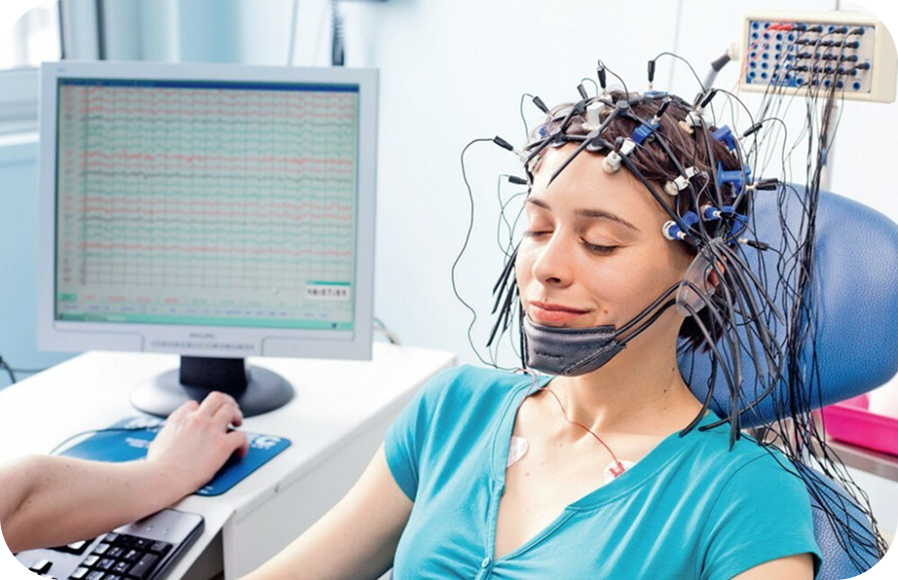Information on the first phase is presented in the article:
https://gsrsystem.ru/nauchnye-issledovaniya/gsr-i-nauka-vazhnyj-shag-vperyod/
The second phase was devoted to objective changes in top specialists as a result of many years of using the GSR methodology.
The full text of the study can be downloaded from the link

STUDY OF THE INFLUENCE OF REGULAR GSR PRACTICE ON ELECTROPHYSIOLOGICAL INDICATORS OF EMOTIONAL REACTIVITY
Purpose of the work
Assessment of people's emotional reactivity by analyzing the dynamics of key physiological parameters:
- heart rate;
- level of electrodermal response;
- respiratory rate;
- brain activity;
- heart rate variability.
The study was conducted among two groups of participants:
- People with more than 5 years of experience working with the GSR psychotherapeutic method.
- People who have no experience using it.
The obtained results demonstrate that regular practice according to the GSR method is associated with the formation of stable psychophysiological adaptation mechanisms and an increase in the subjective sense of well-being.
GSR practitioners experience:
- greater resistance to negative stimuli;
- higher level of awareness;
- less tendency to use maladaptive coping strategies to cope with stress;
- faster adaptation to incoming information or switching of attention;
- higher level of life satisfaction.
📌 Conclusion:
The study confirms that long-term practice of psychophysiological self-regulation using the GSR method is associated, among other things, with a more stable emotional background and reduced emotional reactivity. These effects are traced both at the physiological (objective) and subjective levels. The data obtained can be used in the future to introduce the GSR training method into wellness programs and clinical practice for people with increased anxiety or post-traumatic disorders.
If you plan to publish this research in the media, distribute this information to a wide audience, or contact government agencies, please coordinate this with the GSR administration in advance.